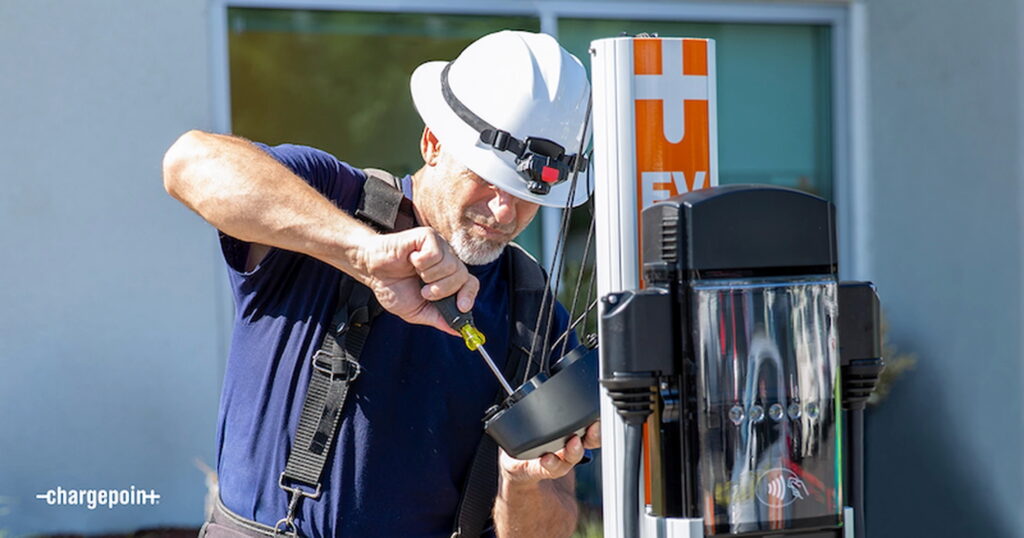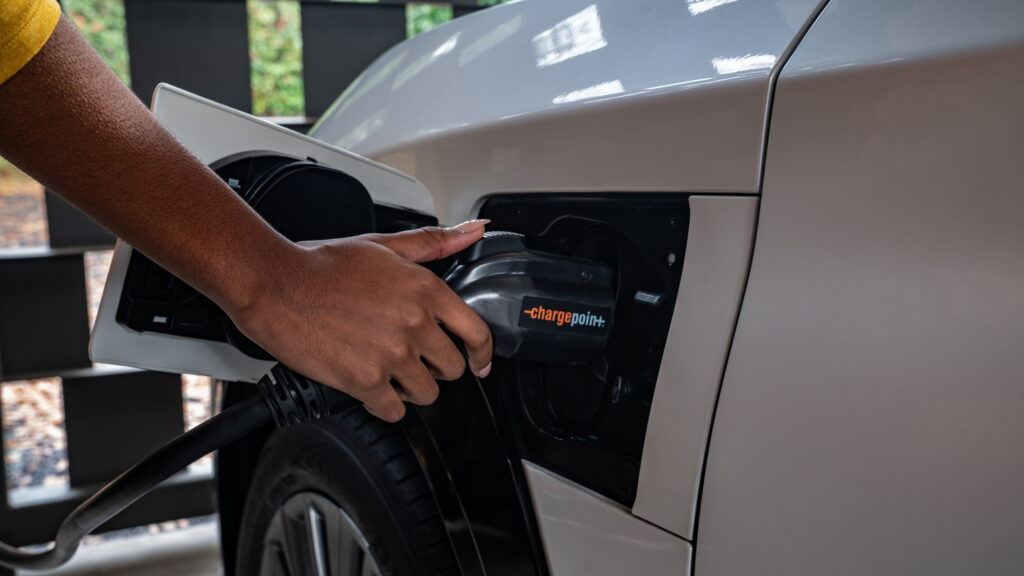As EVs grow in popularity, the reliability of charging stations has become a major concern for drivers. ChargePoint is trying to soothe owners’ anxieties with a new plan that it says will help it achieve nearly 100 percent system uptime.
Although there is no industry standard for measuring how reliable charging stations are, ChargePoint says it measures it by calculating the portion of time each individual port is working. By that standard, it claims it already delivers 96 percent uptime across its public network in North America and Europe. However, it wants even greater reliability.
“Accessible, reliable EV charging plays a critical role in the ongoing shift to electric mobility, and our Network Operations Center is prepared to ensure reliability at scale in support of EV adoption.” said Rick Wilmer, Chief Operating Officer at ChargePoint. “We are improving the charging experience across the entire ecosystem – network, installer, site host, and app user – to ensure every driver who needs a charge has the best possible charging experience.”
Read: Public Charging Networks In The U.S. Are Still Unreliable – Here’s Why

Its Network Operations Center (NOC) will be able to deliver 24/7 station monitoring and analytics thanks to applied machine learning. It will seek to ensure that each individual charging port can communicate instantly with the operations center, and will even monitor social media for mentions of charging issues. That will allow it to respond to issues 24 hours a day.
In addition, ChargePoint says it is working to develop a training and certification program for electrical contractors who work with EV charging infrastructure. Expected to go live in 2024, the program will help the company avoid faults in the first place thanks to improved installation.
ChargePoint says it currently operates more than 243,000 charging ports around the world, but competition in the industry is heating up. While Tesla’s Supercharger network is considered by many to be the gold standard, seven established automakers have also announced that they will create a joint venture company with a view to building a North American charging network for their electric vehicles.





